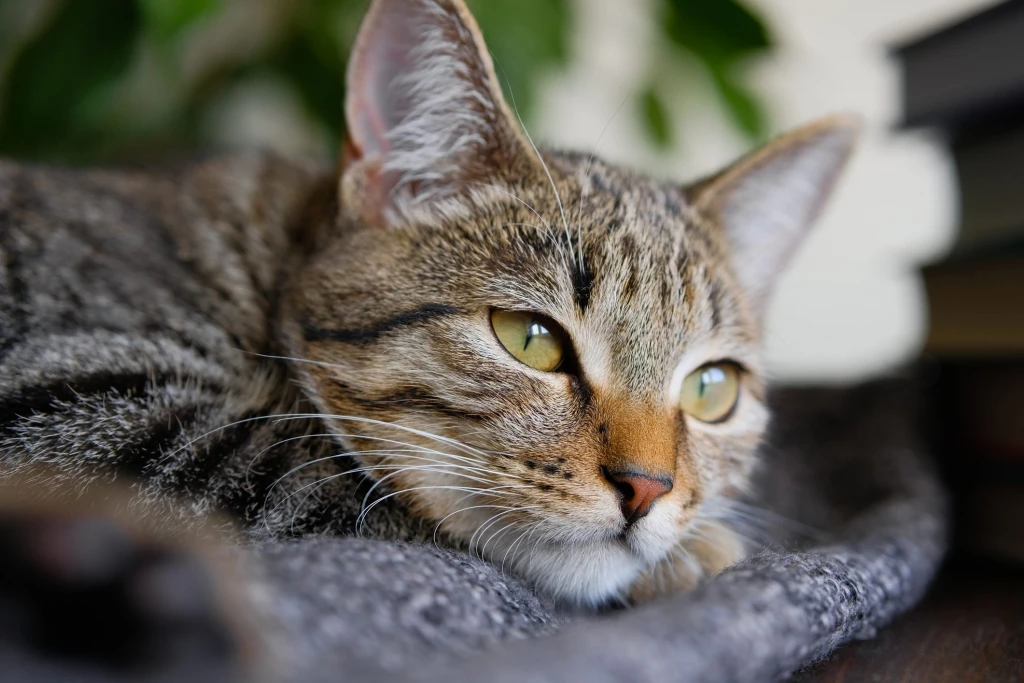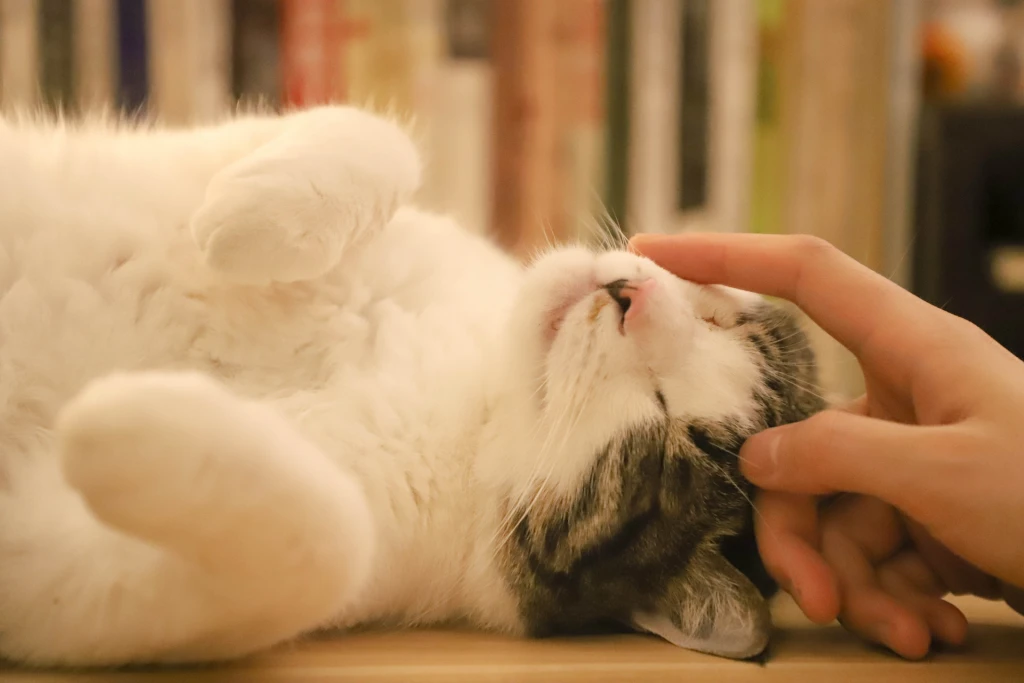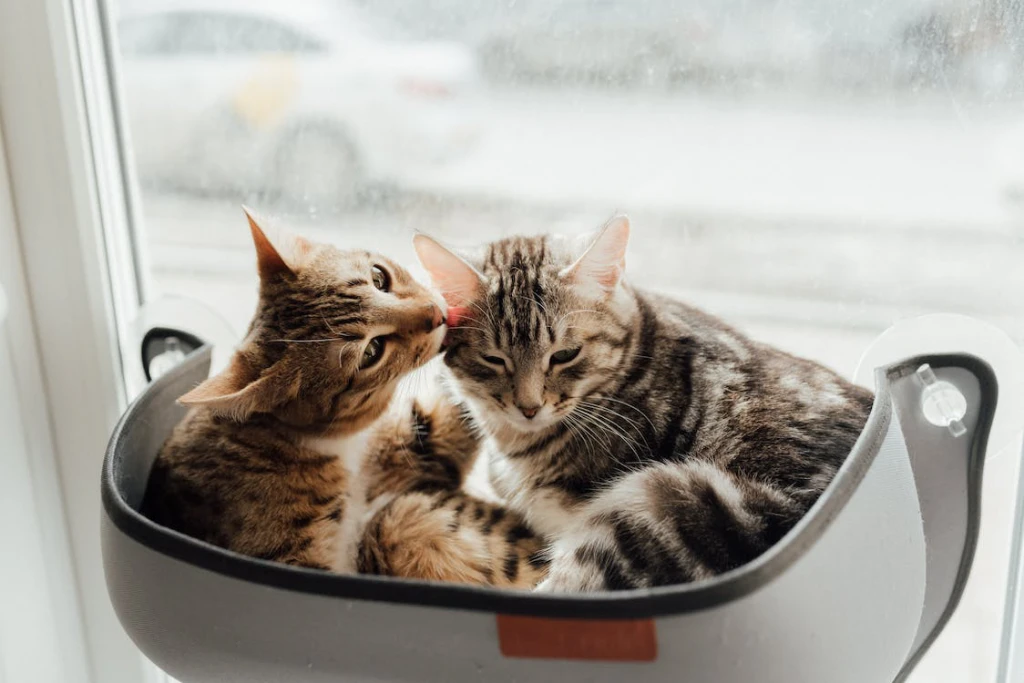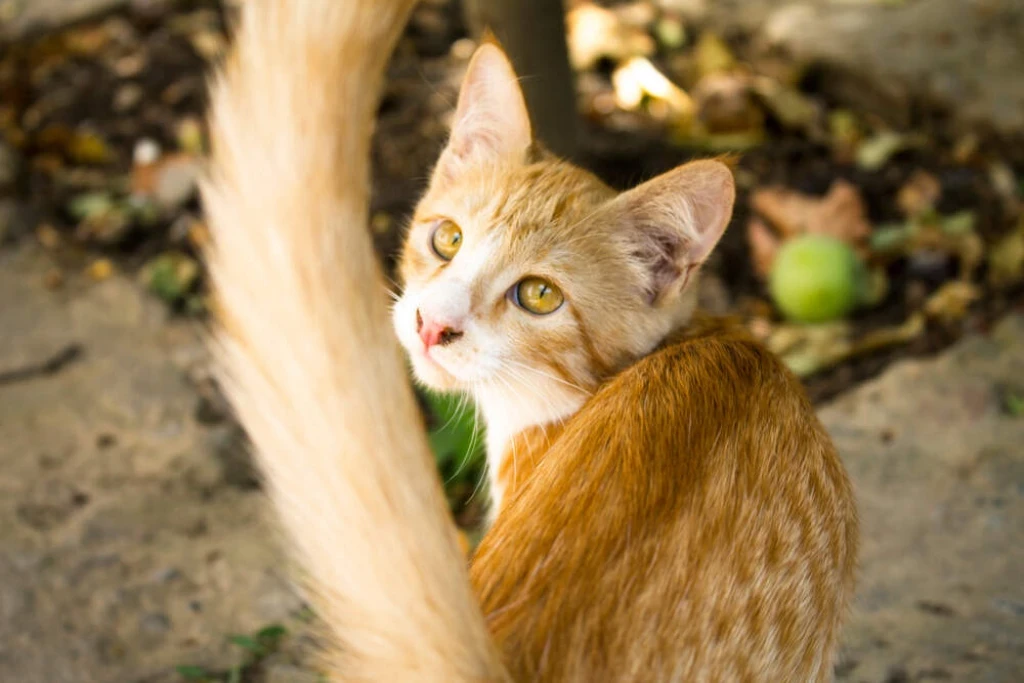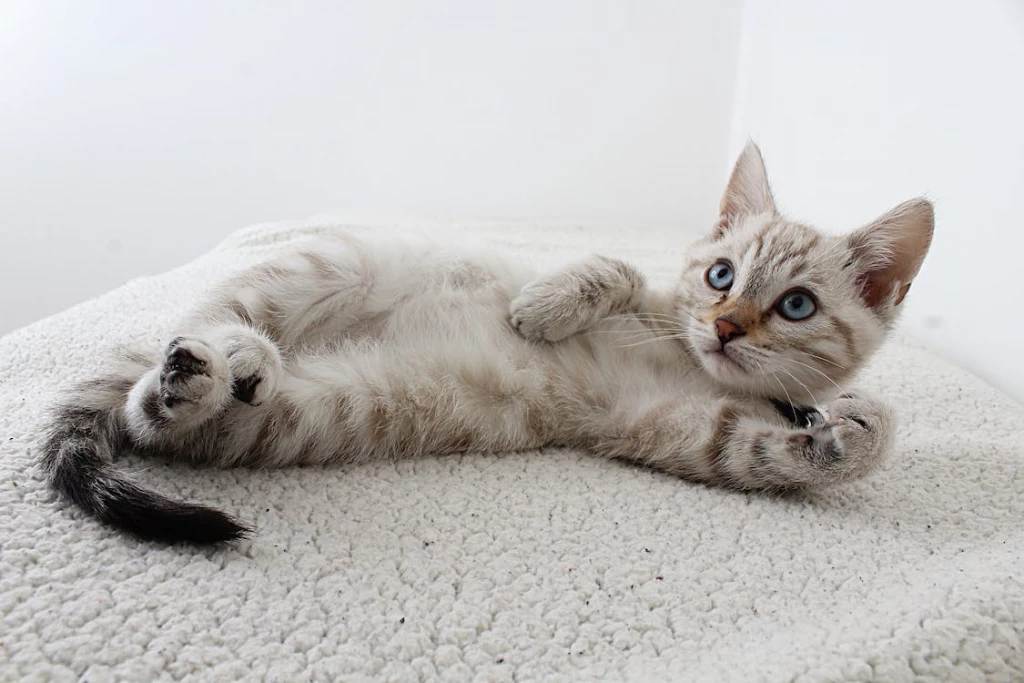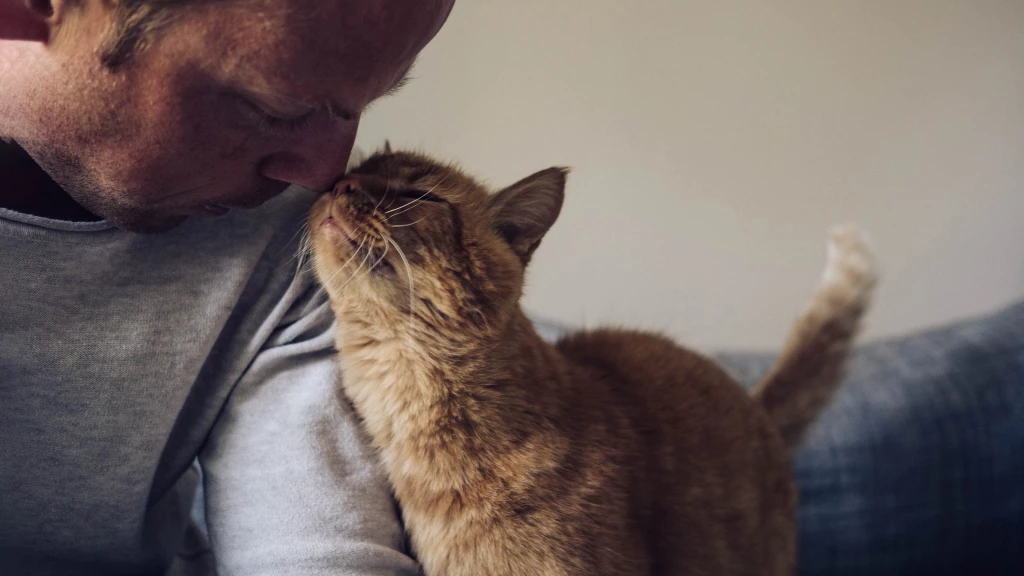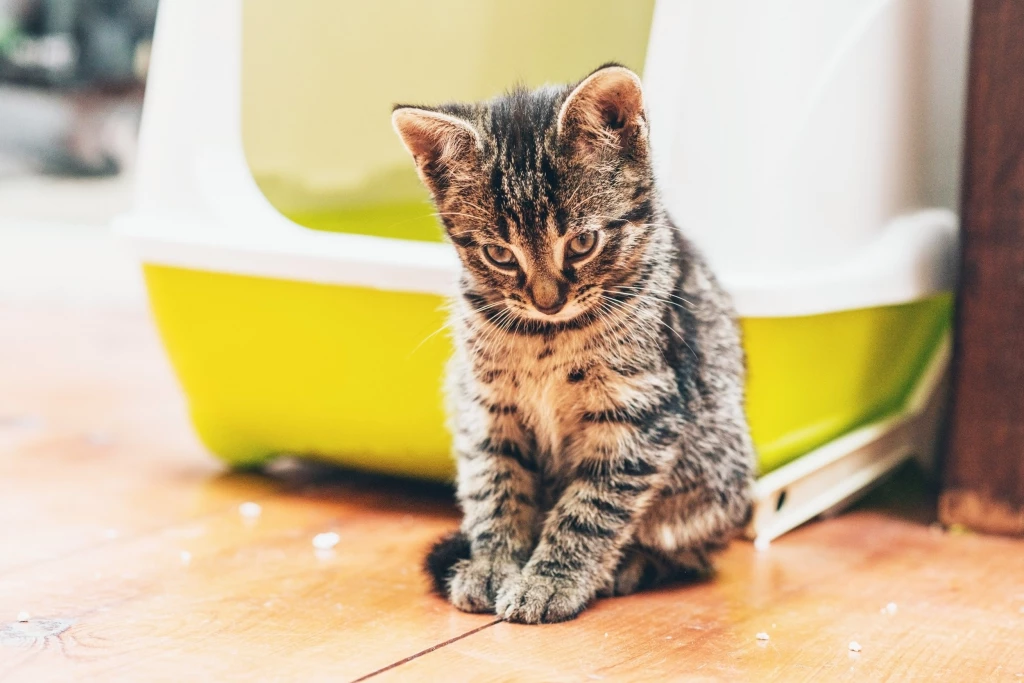Purring is one of the most distinctive and endearing sounds that cats make. It can convey a range of emotions, from happiness and contentment to stress and pain. But what if your cat doesn't purr at all? Does that mean they don't love you or they are unhappy? Not necessarily.
There are many possible reasons why your cat doesn't purr, and some of them may surprise you. In this ultimate guide, we will explore the following topics:
- What is purring and how do cats do it?
- What are the benefits of purring for cats and humans?
- What are the common reasons why cats purr?
- What are the common reasons why cats don't purr?
- How can you encourage your cat to purr more?
- How can you tell if your cat is happy without purring?
By the end of this guide, you will have a better understanding of your feline friend's behavior and communication style, and you will be able to enjoy a deeper bond with them.
What is Purring and How Do Cats Do It?
Purring is a low-frequency sound that cats produce by vibrating their vocal cords and diaphragm muscles when they breathe in and out. The exact mechanism of how cats purr is still not fully understood by scientists, but it seems to involve a neural oscillator in the brain that controls the rapid movements of the larynx and diaphragm.
Purring can be heard in many different species of cats, from domestic cats to big cats like lions and tigers. However, not all cats can purr. Some cats, such as cheetahs and lynxes, can only make high-pitched sounds like chirps and meows, while others, such as leopards and jaguars, can only roar.
Purring is one of the first sounds that kittens make when they are born. They use it to communicate with their mother and siblings, who are also blind and deaf at birth. The mother cat also purrs to soothe her kittens and guide them to her nipples. As kittens grow up, they continue to purr to express their emotions and needs.
What Are the Benefits of Purring for Cats and Humans?
Purring has many benefits for both cats and humans. For cats, purring can:
- Signal happiness and contentment: Cats often purr when they are relaxed, comfortable, or enjoying something, such as being petted, groomed, or fed. Purring can also indicate affection and trust between cats and their owners or other cats.
- Calm themselves down: Cats also purr when they are stressed, scared, or in pain. Purring can help them cope with difficult situations, such as visiting the vet, giving birth, or being injured. Purring can also act as a self-healing mechanism, as it stimulates blood flow and oxygen delivery to the tissues.
- Promote healing and regeneration: Purring can have positive effects on the health of cats, as it produces vibrations that range from 25 to 150 Hertz. This frequency range has been shown to enhance bone density, muscle growth, wound healing, and pain relief in animals and humans.
- Solicit food or attention: Cats can also use purring as a way to manipulate their owners into giving them what they want. Some cats have developed a special type of purr that combines a low-pitched sound with a high-pitched cry that resembles a human baby's cry. This sound can trigger an instinctive response in humans to care for the cat.
For humans, listening to a cat's purr can:
- Reduce stress and anxiety: Studies have shown that interacting with a cat can lower blood pressure, heart rate, cortisol levels, and other indicators of stress in humans. The soothing sound of a cat's purr can also have a calming effect on the nervous system and induce relaxation.
- Improve mood and well-being: Studies have also shown that owning a cat can improve mental health, happiness, and quality of life in humans. The sound of a cat's purr can also trigger the release of endorphins, serotonin, oxytocin, and other hormones that are associated with positive emotions.
- Prevent allergies and infections: Studies have suggested that exposure to a cat's purr can boost the immune system and reduce the risk of allergies and infections in humans. The sound of a cat's purr can also have antibacterial and anti-inflammatory properties that help heal wounds and infections faster.
What Are the Common Reasons Why Cats Purr?
As we have seen, cats purr for various reasons, depending on the context and the situation. Some of the most common reasons why cats purr are:
- To express happiness and contentment: This is the most obvious and common reason why cats purr. When your cat is purring while you are petting them, playing with them, or feeding them, they are telling you that they are enjoying your company and attention. They are also showing you their trust and affection.
- To calm themselves down: This is another common reason why cats purr, especially when they are in stressful or painful situations. When your cat is purring while they are at the vet, in a new environment, or recovering from an injury, they are trying to soothe themselves and cope with the stress or pain. They are also signaling to you and other cats that they are not a threat and that they need help.
- To promote healing and regeneration: This is a less obvious but equally important reason why cats purr. When your cat is purring while they are sleeping, resting, or healing, they are using their purr as a form of self-care and self-repair. They are stimulating their body's natural healing processes and enhancing their health and well-being.
- To solicit food or attention: This is a more subtle and cunning reason why cats purr. When your cat is purring while they are looking at you with big eyes, rubbing against your legs, or meowing at you, they are trying to manipulate you into giving them what they want. They are using their purr as a way to appeal to your emotions and instincts and get you to feed them or pay attention to them.
What Are The Common Reasons Why Cats Don't Purr?
Now that we know why cats purr, let's look at why some cats don't purr at all. There are many possible reasons why your cat doesn't purr, and some of them may surprise you. Here are some of the most common reasons why cats don't purr:
- Different communication style: Just like humans, cats have different personalities and preferences when it comes to communication. Some cats may not purr because they don't feel the need to or because they have other ways of expressing themselves. For example, some cats may prefer to use body language, facial expressions, or other vocalizations to communicate with you or other cats. Some cats may also be more reserved or independent and may not seek your attention or affection as much as other cats.
- Feral origins: Some cats may not purr because they have never learned how to from their mother or siblings. This is especially true for cats that were born to feral mothers or were separated from their littermates at an early age. These cats may not have been exposed to the sound of purring during their critical socialization period and may not have developed the habit of purring. They may also be more wary or fearful of humans and other cats and may not feel comfortable enough to purr.
- Vocal cord injury: Some cats may not purr because they have a physical problem that prevents them from doing so. For example, some cats may have a congenital defect or an injury that affects their vocal cords or larynx. These cats may not be able to produce any sound at all or may have a very faint or distorted sound. They may also experience pain or discomfort when trying to purr.
- Stress or illness: Some cats may not purr because they are under too much stress or suffering from an illness. For example, some cats may stop purring when they are in a new or unfamiliar environment, when they are exposed to loud noises or other stressors, or when they are experiencing anxiety or depression. Some cats may also stop purring when they have a fever, an infection, a chronic disease, or a terminal condition. These cats may be too weak or sick to purr or may be hiding their pain or vulnerability from you or other cats.
- Older age: Some cats may not purr because they are getting older and losing some of their abilities. For example, some senior cats may stop purring because they have hearing loss, cognitive decline, arthritis, or other age-related issues. These cats may not be able to hear themselves purr or may have difficulty controlling their vocal cords or diaphragm muscles. They may also be less active or playful and may not enjoy being petted or groomed as much as before.
- You're just not hearing it: Some cats may not purr because you're just not hearing it. For example, some cats may have a very low-pitched or quiet sound that is hard to detect by human ears. Some cats may also only purr in certain situations or with certain people that make them feel comfortable and happy. You may need to pay more attention to your cat's behavior and body language to notice when they are purring or to hear their purr better.
How Can You Encourage Your Cat to Purr More?
If you want your cat to purr more, there are some things you can do to encourage them. Here are some tips on how to make your cat purr more:
- Provide a safe and comfortable environment: Make sure your cat has a cozy and secure place to sleep, rest, and hide. Provide them with enough food, water, toys, scratching posts, and litter boxes. Keep them away from loud noises, strangers, or other sources of stress. Respect their boundaries and don't force them to interact with you or other cats if they don't want to.
- Give them lots of love and attention: Spend quality time with your cat every day. Play with them, talk to them, pet them, groom them, or cuddle with them. Find out what they like and dislike and what makes them happy and content. Reward them with treats, praise, or affection when they purr or show positive signs of communication. Be consistent and patient with your cat and don't punish them for not purring or for being aloof.
- Consult your vet: If you suspect that your cat doesn't purr because of a medical condition or an injury, take them to the vet as soon as possible. Your vet can diagnose the problem and prescribe the appropriate treatment or medication. Your vet can also advise you on how to care for your cat and how to prevent further complications or infections. Follow your vet's instructions and monitor your cat's progress and recovery.
- Try some natural remedies: If your cat doesn't purr because of stress or anxiety, you can try some natural remedies to help them relax and feel more comfortable. For example, you can use a pheromone diffuser, spray, or collar that mimics the scent of a mother cat's purr. This can help calm your cat and make them feel more secure and confident. You can also use some herbs, such as catnip, valerian, or chamomile, that have soothing and sedative effects on cats. However, be careful not to overuse these remedies or to give them to your cat without consulting your vet first.
How Can You Tell If Your Cat Is Happy Without Purring?
If your cat doesn't purr at all or very rarely, you may wonder if they are happy or not. How can you tell if your cat is happy without purring? Well, there are other ways to read your cat's emotions and mood besides their sound. Here are some signs that indicate that your cat is happy without purring:
- They have a relaxed body posture: A happy cat will have a relaxed body posture, with their ears upright, their eyes half-closed or blinking slowly, their tail up or curled around their body, and their whiskers forward. They will also stretch, yawn, roll over, or knead their paws when they are comfortable and content.
- They have a good appetite: A happy cat will have a good appetite and will eat their food regularly and eagerly. They will also drink enough water and groom themselves properly. They will not show signs of nausea, vomiting, diarrhea, weight loss, or hair loss that could indicate a health problem or stress.
- They are playful and curious: A happy cat will be playful and curious and will show interest in their surroundings and in you. They will chase toys, explore new places, sniff new objects, or watch birds or insects. They will also initiate play with you or other cats and will respond positively to your invitations.
- They are affectionate and sociable: A happy cat will be affectionate and sociable and will seek your attention and company. They will rub against your legs, head-butt you, lick you, or sit on your lap. They will also greet you when you come home, follow you around the house, or sleep next to you. They will also get along well with other cats or pets in the household.
Conclusion
Purring is one of the most amazing and fascinating sounds that cats make. It can convey a range of emotions and have many benefits for both cats and humans. However, not all cats purr the same way or for the same reasons. Some cats may not purr at all or very rarely because of their personality, their background, their health, their age, or their communication style.
This doesn't mean that they are unhappy or that they don't love you. You can still enjoy a deep and meaningful bond with your cat by understanding their behavior and communication style and by providing them with a safe and comfortable environment, lots of love and attention, and proper care and treatment.
You can also encourage your cat to purr more by finding out what makes them happy and content and by rewarding them with treats, praise, or affection. And you can also tell if your cat is happy without purring by looking at their body language, their appetite, their activity level, and their social interactions.
By following these tips, you can make your cat purr more or at least make them feel more relaxed and comfortable around you.
